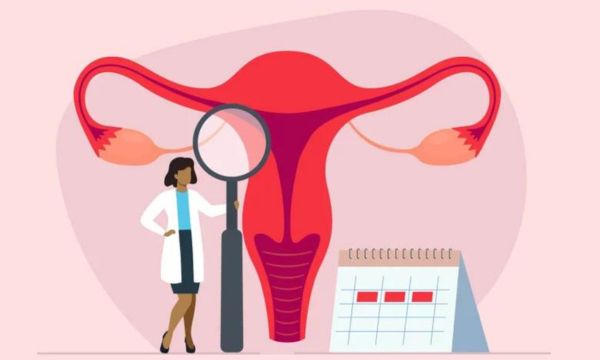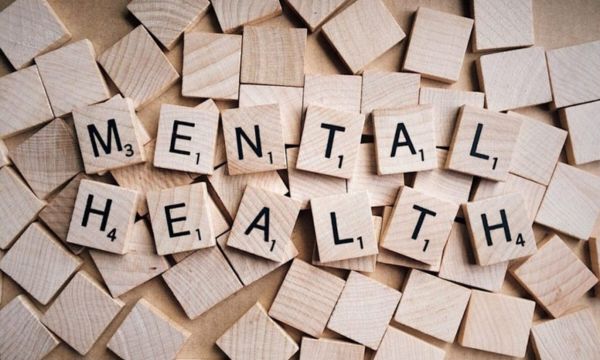Your Pregnancy Journey: From Conception to Birth
Bringing a baby into this world is a beautiful and life-changing event. Your pregnancy journey is unique and very personal. Full of ups and downs, expectations and joy. From pregnancy to delivery, your body goes through many changes to care for and protect your growing baby. In this article, we’ll take you through the amazing journey of pregnancy, explain what to expect at each stage and give you key tips to help you enjoy this life-changing moment.
Conception and the First Trimester:
Pregnancy usually begins with a pregnancy. Something amazing happens when a sperm cell connects with an egg cell to form a baby. From now on, your body is about to embark on a very interesting journey. From weeks 1 to 12, the first trimester of pregnancy, is a very important growth period. Towards the end of this trimester, your baby’s organs begin to form and you can usually hear his heartbeat.
During the first trimester of pregnancy, it is normal to feel tired and nauseous in the morning. You can make this time easier by taking prenatal vitamins, staying hydrated, and getting plenty of rest. You should consult your doctor or nurse regularly to monitor your baby’s growth and resolve any problems.
The Second Trimester: A Time of Learning and Growth
It is often said that the second trimester, from weeks 13 to 27, is the best period of pregnancy. Many women feel more energetic and their morning sickness disappears. This is also the first time you will feel your baby’s fetal movement, which is called ‘accelerated fetal movement’.
During this time, your baby’s features become clearer and you may undergo an ultrasound to check his growth and gender. Talking or singing to your belly is a great way to get to know your baby. Additionally, maintaining a healthy diet and prenatal exercise can promote your health and your baby’s growth.
The Third Trimester: The Final Countdown
The third trimester is the final phase of pregnancy, from week 28 until delivery. As your baby grows, your excitement to meet him or her will increase. As your belly gets bigger, you may experience symptoms such as back pain, more frequent trips to the toilet, and trouble sleeping. At this time you should also prepare for childbirth.
You will feel more confident about your birth if you take prenatal classes. Additionally, making a birth plan and packing your hospital bag in advance can help reduce stress as your due date approaches. Keep in close contact with your doctor or nurse. They will monitor your progress and help you with any concerns you may have.
Preparing for Labor and Delivery:
As you approach the end of your pregnancy, you need to prepare for childbirth. Discuss your birth plan with your healthcare provider, including how you want to manage pain, how you want to give birth, and who you want present.
Consider taking a childbirth class to learn about the different stages of labor, how to relax, and what to expect during labor. Also visit the hospital or birth center where you want to give birth so that you know what to expect.
Important Day: Delivery
This is the day you’ve been waiting for. Childbirth can be difficult and stressful, but remember: you are not alone. Your care team is ready to help you every step of the way.
During labor, you may feel like your contractions are getting stronger and more frequent as time goes by. You can control the pain through breathing techniques and by trying different pain relief methods. Be prepared to change your birth plans if necessary. The safety and health of you and your baby are the most important things.
When your baby is born, you may feel a rush of happiness and relief. Skin-to-skin contact and breastfeeding can help you bond with your baby and provide him or her with important nutrients. Enjoy these special moments when your baby comes into the world.
The Postpartum Period: Getting Better and getting Used to It
Your body needs time to recover after giving birth, both physically and mentally. After giving birth, you may experience bleeding, pain and changes in hormone levels. It is important to pay attention to your body, get enough rest and let friends and family help you.
Emotionally, the postpartum period brings a wide range of emotions, from intense love for your baby to doubt and worry. It’s completely normal to feel this way. If you feel sad or anxious after giving birth, reach out to someone you trust and consider talking to a mental health professional.
Conclusion:
Your pregnancy journey doesn’t end when you give birth; it becomes a new part of parenting. Accept the challenges and joys of raising children and know that there is no one way to do it. Ask for help when you need it, but also listen to your instincts as a parent.
During this amazing journey, from pregnancy to birth and beyond, enjoy the moments, write down what you learn and talk to other parents who can support and help you. Your pregnancy is a beautiful and special story that you will never forget.
FAQs:
1. How can I confirm that I am pregnant?
After your period has been delayed, you can take a pregnancy test at home. These tests detect the presence of the hCG hormone produced during pregnancy. For definitive confirmation, you can ask your healthcare provider for a blood test or ultrasound.
2. What are the most common early signs of pregnancy?
Early symptoms may include delayed menstruation, breast tenderness, fatigue, nausea (morning sickness), frequent urination, and changes in appetite. However, these symptoms vary from person to person.
3. When should I start prenatal care?
It is recommended that you schedule your first prenatal visit as soon as you suspect you are pregnant or have a positive pregnancy test. Early prenatal care is essential to monitor your baby’s development and address any problems.
4. What foods should be avoided during pregnancy?
Yes, there are certain foods you should avoid, such as raw or undercooked fish, unpasteurized dairy and processed meats. It is also important to limit caffeine intake and avoid drinking alcohol and smoking altogether.
5. How much weight should I gain during pregnancy?
Weight gain during pregnancy depends on your pre-pregnancy weight. On average, women of a healthy weight should gain 25-35 pounds. Your healthcare provider will provide specific advice based on your individual situation.
 Demystifying the Menstrual Cycle: What You Need to Know
Demystifying the Menstrual Cycle: What You Need to Know
The menstrual cycle is a normal biological process that most women experience from puberty to menopause. Although […]
More Understanding Women’s Health: A Comprehensive Guide
Understanding Women’s Health: A Comprehensive Guide
Women’s health is a vast and complex topic that encompasses physical, emotional, and social well-being. It is […]
More Women’s Mental Health: Nurturing Well-Being in Every Season of Life
Women’s Mental Health: Nurturing Well-Being in Every Season of Life
In today’s fast-paced world, the importance of mental health cannot be overstated. Women in particular face issues […]
More